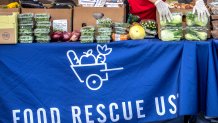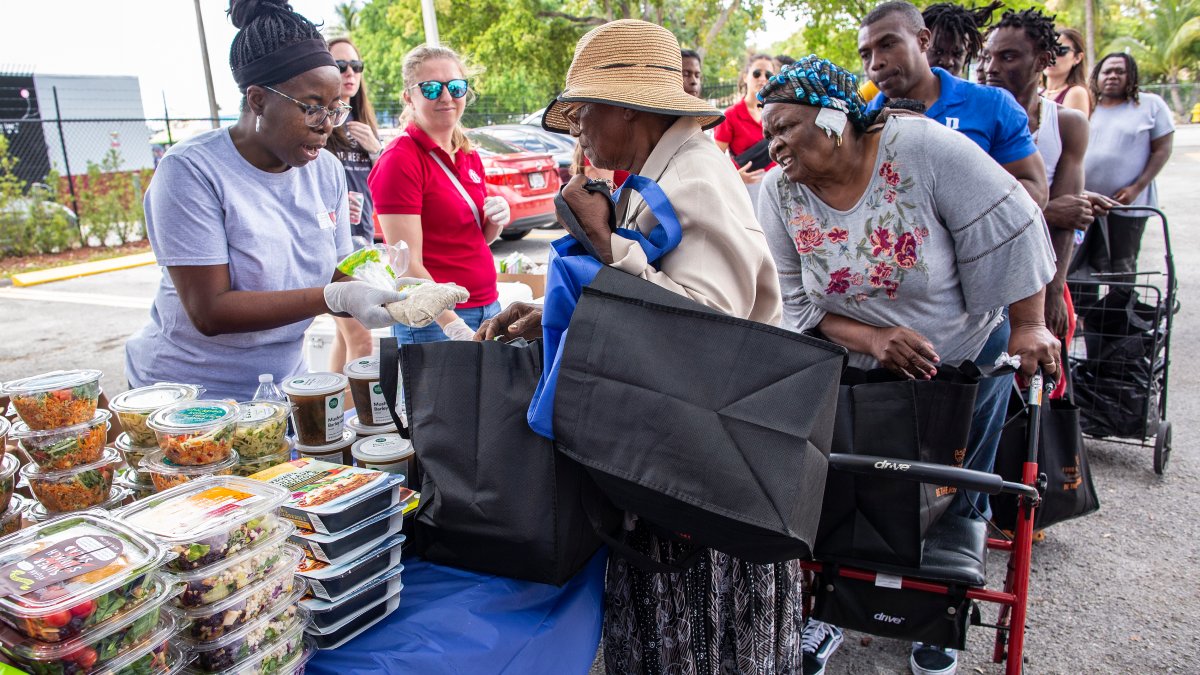Preventing tons of leftovers from a food court and a trendy supermarket from ending up in the landfill is mobilizing those in Miami fighting against food waste for both humanitarian and environmental reasons.
This is what volunteers from the Food Rescue association did this weekend, who first went to a supermarket in Coral Gables, a city in Miami-Dade with strong purchasing power, then, laden with food, in a northern district. of the city known as Little Haiti, where nothing is superfluous.
“There are a lot of people in South Florida who are food insecure,” said volunteer Jane Marie Russell, a 38-year-old attorney who has dedicated years to this mission.
Diego López, an employee of the Trader’s Joe supermarket, explained that “although the food is in perfect condition”, it is given away because the sale date has expired and, by law, it must be removed.
Trader’s Joe employees appeared in the supermarket’s loading area with boxes full of apples, bananas, pineapples and canned goods which the volunteers piled as best they could into two cars en route to Little Haiti .
“Today is apple day,” said Russell, surprised by the number of boxes of this fruit, a product in perfect condition that, without regulation, it would be difficult to understand how the supermarket can discard.
Various studies indicate that approximately one third of the food produced in the world is wasted.
Humanitarian concerns add to environmental concerns, because when these food scraps end up in landfills, all the energy and water used in processing them is wasted.
In addition, food in landfills rots and produces methane, a greenhouse gas more potent than carbon dioxide.

Food Rescue, founded in 2011 to create a food rescue model, is committed to fighting waste. In thirteen years of activity, the destination of 64 million kilos of food has changed.
Food Rescue South Florida director Ellen Bowen said this weekend was special because once a month there is a massive food delivery to people in need somewhere in Miami-Dade County this era the Peniel Church of the Nazarene.
Hundreds of people, mostly of Haitian descent, came to Little Haiti Church in Miami to pick up fresh fruits, vegetables and grains that volunteers arranged on long tables.
There was Venezuelan Ana María Díaz, 33, who pointed out that she is “processing ‘papers’ to reside in the United States” and does not work, so she needs help to eat .
LEFTOVER FOOD FOR PLACES WHERE NOTHING LEFT
Bowen explained that although a large food delivery is made each month to different parts of the state, their work is weekly – on a smaller scale – for which they have the support of organizations such as the Junior League of Miami.
Food Rescue’s work is not solitary and is supported by institutions such as Florida International University (FIU).
The Venezuelan Keidybel Rincón, master’s student in the FIU Chaplin School of Hospitality and Tourism Management program, pointed out that recently more than 40 tons of waste did not reach landfills thanks to an initiative of the entity.
“At the 22nd Annual South Beach Food and Wine Festival, one of the largest events of its kind in America, food waste was avoided and trash was recycled,” he said.
“In total, this year, our team collected 22,000 kilos of recyclable materials – plastics and bottles -, 6,300 kilos of food intended for compost because it had already been handled, and 11,000 kilos of intact edible food”, said he specified.
Some of this food has been donated to local homeless institutions, part of a work carried out for more than 15 years, while plastic recycling resumed in 2023 after a 10-year hiatus.
According to the World Wide Fund for Nature, in the United States alone, the production of lost or wasted food generates the equivalent in greenhouse gas emissions of 43 million cars, a problem that entities such as Food Rescue or FIU students attempt to solve. give the solution.

